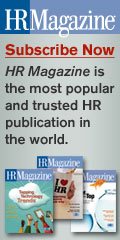Who's Tweet is it anyway?
 Print this Article | Send to Colleague Print this Article | Send to Colleague
Who owns the tweets, sites, blogs and other media accounts that may be designed or intended (at least by the company) to promote its business? You may say that the answer to this question is clear, except that a lack of clarity has resulted in two hotly contested and expensive lawsuits between employers and former employees, who both claim ownership in certain electronic communication created by the individuals when they were employees and done, reportedly, on behalf of the company.
Company branding, advertising, and client outreach change by the second as electronic and other media expand exponentially. Today, employers are using Facebook, YouTube, LinkedIn, and Twitter, to name a few, to spread the good company word. In fact, marketing managers and others in an organization are being encouraged and, in some cases, specifically hired, to tweet, blog, text and generally positively comment and promote their employers. In the midst of this electronic social media blitzkrieg, best practices gurus harangue that there must be a "social media policy (!)" but, to date, those policy concerns generally have focused on unwanted or unprofessional employee language.
The question is: Are company policies broad enough to include concepts of "ownership" in the social media communication of employees done on behalf of the company?
We routinely ask for badges, documents, computers, cars, phones and other company property at termination. Do we also ask for the Twitter or Facebook passwords, too? Or is it too late by then?
Currently there are two cases in which the employer is at odds with former employees over the rights to Internet accounts. There is no clear-cut answer yet in either case, because, as it turns out, the rules for Internet comments by the two employees in question were not worked out, in writing, at the beginning of the employment relationship (or ever). The parties were left with arguably undefined Internet accounts and verbal "he said/she said" disputes.
In PhoneDog, LLC v. Kravitz, cause no. 3:11-cv-03474-MEJ, pending before the federal court in Northern California, the question is whether Noah Kravitz or PhoneDog has a right to the Twitter account that Kravitz created and managed while he worked for PhoneDog; this account had over 17,000 followers when Kravitz, who was hired to promote the company on social media, quit. After his resignation, the Twitter handle of "PhoneDog_Noah" became simply "noahkravitz," and Kravitz continued to lay claim to the Twitter postings, account, and followers. Denied access to the Twitter account, PhoneDog claimed that Kravitz had damaged the company by "taking" these Twitter groupies, and it sued Kravitz for misappropriation of trade secrets, intentional and negligent interference with prospective economic advantage, and conversion. Currently the parties are attempting to resolve the case through mediation.
In Eagle v. Morgan, et al., cause no. 2:11-cv-04303-RB, pending before the federal court in Eastern Pennsylvania, similar issues are at stake, but a LinkedIn account is the focus. The employer is EdComm Inc., which contends that the LinkedIn account contains valuable business information; for her part, former employee Eagle alleges that she was damaged when the company improperly changed the password on her "personal" account and replaced her photo with someone else. As with PhoneDog, EdComm brought various business torts against Eagle – such as misappropriation, conversion, and unfair competition. The case may go to trial next month, if the court does not dismiss it based on pending motions.
Solutions? As with most employment issues, a front-end "think through" is the best remedy. Setting the ground rules is the key.
Some good steps to take are the following:
· Clearly identify the work and expectations for employees -- then both the employer and employee will understand what the employee is to do and to what sites, if any, he/she may be required to post. Determine the kinds and nature of the posts that the company expects. Will personal commentary, along with company-endorsed discussion, be permitted? If private and company commentary are mixed, make it clear to the employee that, no matter what is posted on a particular company-related site, all will be treated as company property and any followers or interested parties will "belong" only to the company, not to the employee.
· Identify what particular accounts belong to the employer, and mandate that all passwords be delivered to the employer at any time requested, along with easy access into such sites whenever requested by the employer.
· Notify the employee, in writing, that postings are done "at the behest and on behalf of" the employer – so, not only must the postings meet company expectations for appropriate language, but all postings belong to the company.
· Advise that at any time (and particularly at termination) the employee must surrender or turnover to the employer the identified accounts.
· Link all company policies and procedures to such outside sites and postings – in this way, confidentiality, trade secret protection, anti-harassment, and other relevant policies are tied to employee activity on the ‘Net.
· Notify the employee that there is no reasonable expectation of privacy in any such identified company sites, as the sites and accounts are not deemed to be private accounts; they are company accounts set up for company purposes.
· Present a reminder notice to departing employees, letting them know what the company expects as to these accounts, and consider adding a line in all severance agreements mandating that all passwords be turned over as part of the separation.
· Avoid blurring the lines between company sites and accounts and those used personally by employees, who may also comment about their employer on their private accounts. Companies have to recognize that encouraging such "private" tweeting or blogging may prevent the company from asserting a right of ownership to the site, posts, or followers of such "private" account.
The bottom line is that Internet posts and sites created for company advertising and promotion are no less valuable property than the desks and computers in an office. In fact, as sites and posts like that are critically connected to customers and company goodwill, they are arguably much more valuable than mere office equipment. Thus, the loss of a LinkedIn or Twitter account may have a significant negative impact on a company’s marketing efforts. To protect these posts and sites, a company has to treat them as the valuable commodity that they are, keeping control over them from the beginning to the end of any employment relationship.    
|
|




